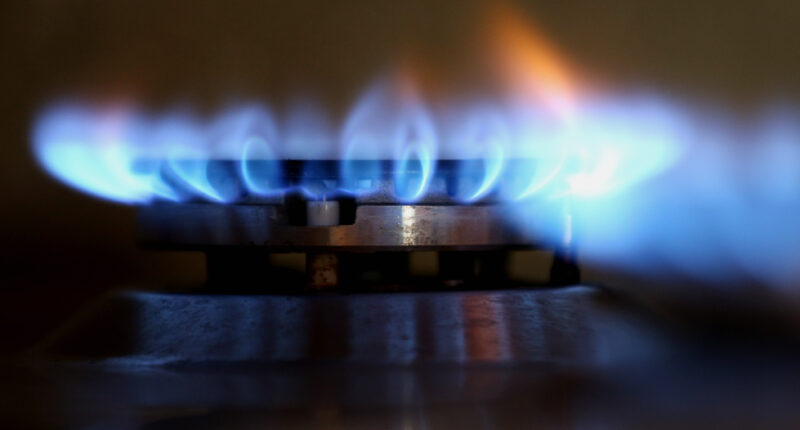MILLIONS of energy customers will still pay more for their energy within weeks despite government help.
Some households will end up paying £160 more, on average, than those who pay by direct debit or through a prepayment meter.
Figures obtained by The Sun show that 5.5million households who pay for their energy bill via credit, debit card or cheque will miss out on new government help.
The figures provided by Ofgem also suggest that those who pay for their energy by standing order face paying more.
Under both Ofgem’s Energy Price Cap and the government’s Energy Price Guarantee, households pay different unit rates and standing charges depending on how they pay their bills and where they live.
But this will change in July after the Treasury confirmed the end of the “prepayment meter penalty.”


Right now, the cheapest way to pay your energy bills is via direct debit.
Under the Energy Price Guarantee, a typical household pays no more than £2,500 a year.
This figure is based on the average home consuming 12,000kWh of gas and 2,900kWh of electricity per year.
Those with prepayment meters pay around £45 more each year.
Most read in Money
But from July this premium will end and these customers will pay the same rates as those who pay by direct debit.
The removal of £45 prepayment meter premium will help roughly 4million households
But those who pay on receipt of their bill still face paying more.
Latest Ofgem figures show that around 2million households pay their energy bills quarterly by cash or cheque.
Up to 3million more are also thought to pay their bill with a standing order.
These households face higher unit rates and standing charges – meaning that a typical household in these groups pays an extra £160 a year more for their energy bills than necessary.
The Sun has contacted the Treasury for comment.
Matt Copeland, head of policy and public affairs at National Energy Action said: “The reports that the government will scrap the prepayment meter premium are welcome, but it is important that those on standard credit are not left out in the cold at the same time.
“You should not have to pay more for your energy because you pay by cheque or in cash, on receipt of bill.
“These are predominantly older, more digitally excluded households and should not face more than a hundred pounds of extra costs, simply because of how they pay.
“We urge the government to rectify this disparity at the same time as doing so for prepayment meter customers.”
What are the current charges for gas and electricity?
For those who pay by direct debit, the average home is charged 10.33p per kWh for gas and 34.04p per kWh for electricity.
The average standing charge for those paying by direct debit is 28.49p per day for gas and 46.36p per day for electricity.
For those who pay through a prepayment meter, the average home is charged 10.82p per kWh for gas and 33p per kWh for electricity.
The average standing charge for those who pay through a prepayment meter is 37.51p per day for gas and 51.41p per day for electricity.
For those who pay on receipt of bill, the average home is charged 11.27p per kWh for gas and 37.67p per kWh for electricity.
The average standing charge for those who pay on receipt of bill is 33.54p per day for gas and 52.40p per day for electricity.
Be aware that the exact unit rates and standing charges that you pay will vary slightly based on your supplier and where you live.
To find out your specific rates check your most recent gas and electricity bill.
How can I lower my energy bills?
Switching to paying your energy bills by direct debit is one of the simplest ways to bring down your charges.
Customers of several firms have a choice over how their direct debits are set up:
- Fixed direct debits
- Variable direct debits
With a fixed direct debit, you’ll pay a fixed amount every month. Your energy company will work out the cost of your energy for the year ahead and divide this into equal payments.
Most energy firms will use the average amount of gas and electricity used in previous years to calculate your monthly instalments.
With a fixed direct debit you can spread the cost of your energy use without any surprises.


With a variable direct debit, you can choose to pay a varying amount every month or every quarter, depending on the energy you use.
You’ll pay for the energy you use, this means you’ll likely pay more in the winter and less in the summer.










